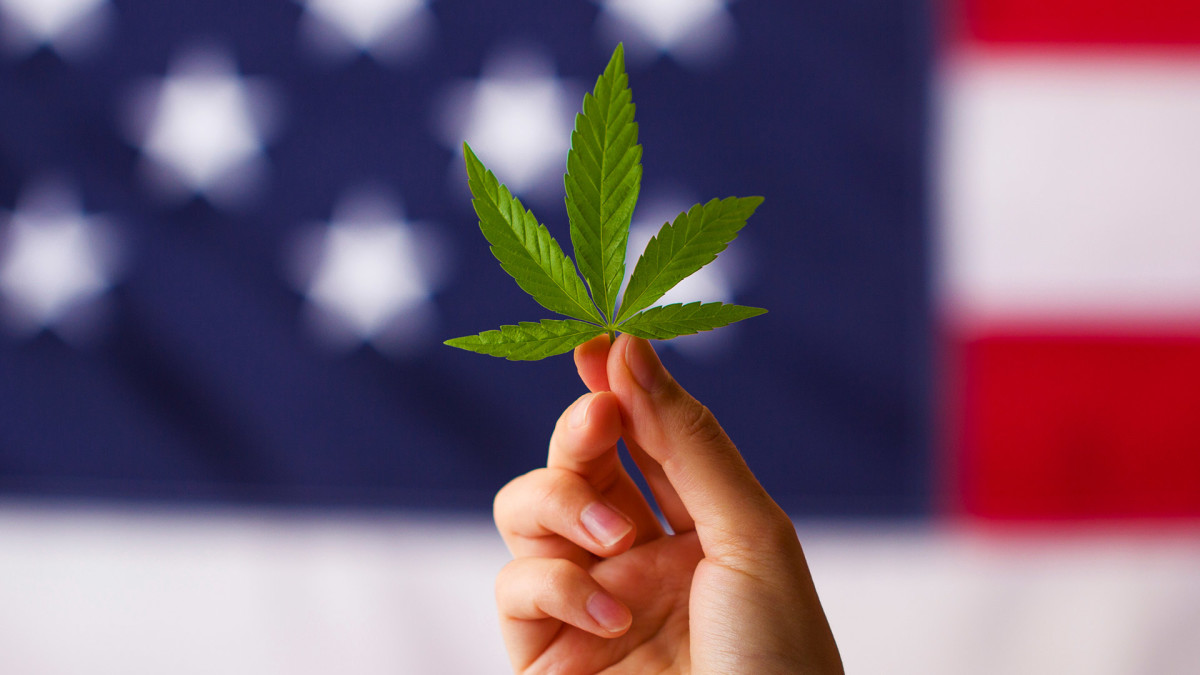
Half of all U.S. states have fully legalized marijuana and there are only six states where it is fully illegal — Kansas, Idaho, Nebraska, Wyoming, North Carolina and South Carolina (though cannabis is decriminalized in North Carolina and Nebraska).
It's a cultural shift that has been decades in the making.
Related: Despite major growth, the cannabis industry is facing a huge roadblock
California became the first state to experiment with legal cannabis when it made medicinal marijuana legal in 1996. Maine, Hawaii, Nevada and Colorado followed suit over the next five years, allowing their citizens to also purchase medical cannabis.
The U.S. government gives the Drug Enforcement agency over $3 billion a year to fight its war on drugs, so a state openly defying the government's edict against the plant was extremely radical at the time.
But between then and now, there was nearly two decades on no movement on the issue as the United States' archaic federal laws against the growth and distribution of cannabis held firm.
But then in 2014 Colorado and Washington took it a step further than California did and became the first states in the union to legalize the recreational use and sale of marijuana.
That year, about 22.2 million Americans aged 12 or older reported current cannabis use, according to a national survey.
It turned out those two states legalizing recreational use represented the start of a newly energized cannabis movement in the United States. Since then, nearly two dozen states have also legalized recreational marijuana.
Washington and Colorado set the example
More than two-thirds of Americans polled by Gallup support legalizing marijuana. The 70% rate of support reached a record-high in October this year. Gallup has been issuing that cannabis poll since 1969.
Back then, just 12% of Americans admitted supporting the legalization of weed.
Gallup's poll results also show the influence Colorado and Washington's move to end prohibition in their states in 2014 helped spur the rapid adoption by the next 23 states.
While public support for cannabis legalization crossed the 50% mark for the first time in 2013, jumping up to 58% from 48% in 2012, it fell back down to 51% in 2014.
But since that year, support for legalizing marijuana has ballooned to the levels seen today.
"Although some health organizations and political commentators have raised concerns about the medical risks of marijuana, this hasn’t blunted the public’s desire for legalization thus far," Gallup said.
"For now, the high level of support among younger adults suggests national backing will only expand in the years ahead, likely resulting in more states, and perhaps the federal government, moving to legalize it."
Money is a major issue
If you think cannabis legislation moves slowly only at the federal level, you'd be wrong.
It took Hawaii, for instance, 20 years to graduate from legalizing medical marijuana — it was the first state to do so through a state legislature vote — to decriminalizing use of the plant in 2019.
While the journey has been long, the real inflection point for legalization came during the pandemic.
Shutting down the economy for over two years exposed and stressed many of the cracks in local economies that had been able to be hidden previously, and the money from taxes on cannabis (along with gambling) suddenly became more palatable for politicians who objected to legalization on moral grounds (see: John Boehner for reference).
Since 2020, Vermont, Arizona, Montana, New Jersey, South Dakota (later reversed by a circuit court judge) New York, Virginia, New Mexico, Connecticut, Rhode Island, Maryland, Missouri, Delaware, Minnesota, and Ohio have all legalized recreational marijuana.
Alabama, South Dakota, Mississippi (reversed by the Supreme Court of Mississippi) and Kentucky have legalized medical cannabis since then while Louisiana decriminalized the drug.
Maryland launched its adult-use cannabis industry in July this year and is seeing sales of $89.5 million a month. Thanks to the state's 9% excise tax on adult use cannabis sales, the state has also received tens of millions of tax dollars it did not have access to last year.
So the economic case for legalizing cannabis is apparent for the states that are now participating. But for the rest of the country, it may take the federal government changing its laws in order for them to get on the cannabis train.
Get exclusive access to portfolio managers’ stock picks and proven investing strategies with Real Money Pro. Get started now.







